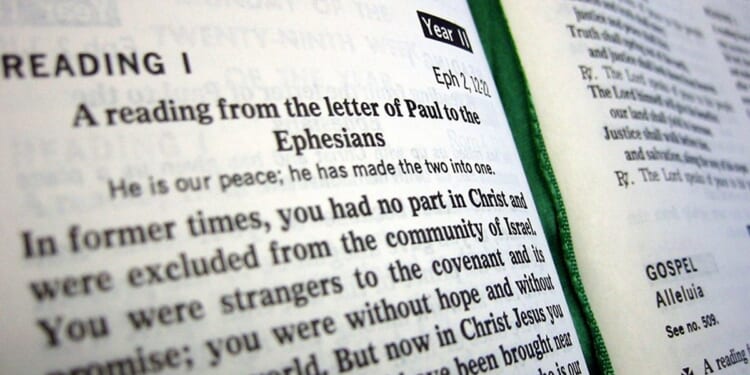Proper 24: Genesis 32.22-31; Psalm 121; 2 Timothy 3.14-4.5; Luke 18.1-8
BEING “broken-hearted” is more than metaphor. It is a real medical condition, also known as “broken heart syndrome”. Extreme suffering or grief can cause weakness in the heart which is potentially fatal. But hearts can be stressed, or damaged, as well as broken. This was in my mind as I read Luke’s take on this parable: a teaching telling people to (a) pray and (b) . . . what?
The RSV, NRSV, and NJB all say that we should not “lose heart”. What a beautiful way of expressing the miserable human experience that we also identify by the word “discouragement”! The Greek word being translated as “losing heart” or “being discouraged” is egkakein. It seems to have particular technical meaning for Christians. Though it is not a common word, it occurs six times in the New Testament, and always with this sense of losing heart, or being discouraged.
In all six cases, it is prefaced by the word “not”. There could be no clearer indication that Christianity and discouragement (or “losing heart”) do not belong together. That is not to suggest that we shall never experience that emotion, but it does warn that we must resist it in all its dreary disillusion. Truly, courage is fundamental to the life of a Christian.
As in prayer, so in writing — sometimes the mind wanders. I got to thinking: what are the roots of this idea of “losing heart”? The first recorded example of it is in the book History of Two the Most Noble Captaynes of the World, Anniball and Scipio, written in 1561 by Sir Anthony Cope. (No, I had not heard of him either.)
Since that first usage, “losing heart” has become a regular English way of referring to failing in confidence or courage, both of which are pertinent to the case of the unjust judge and his dogged appellant. It takes courage to keep going in painful circumstances; and it is vital, for people of faith, to maintain one’s confidence that, in the end, right will prevail, and justice will be done.
What example would Jesus choose if he were sending this message today? Perhaps he would sketch the character of an individual trying to take on faceless and conscienceless social-media giants, such as the bereaved father Andrew Russell, after the death of his daughter Molly (News, 6 December 2024) (highlighting the dangers of young people’s exposure to damaging content online).
Shame for wrongdoing is exceptionally difficult, if not actually meaningless, where individuals hide behind a corporate entity. In 2007, this problem was addressed in law, when the Corporate Manslaughter and Corporate Homicide Act came into force. It created an offence of corporate liability for (effectively) gross-negligence manslaughter. Because of this, it is now possible in law to identify collective responsibility in a corporation. Identifying an individual miscreant is no longer the obstacle to pursuing justice that it once was.
In the parable, though, the unjust judge has no faceless corporate giant to hide behind. In that pre-modern society, justice is a direct process. He cannot avoid encountering his “pesterer” repeatedly, and face to face. That term, “pesterer”, is my rather loose translation of the Greek: “this person who keeps providing me with trouble”. But I hope that it communicates the judge’s exasperation.
If you cannot shame your abuser into doing the right thing, then becoming a nuisance to them is a sensible plan B. Sidestepping the whole business of identifying what is just, it sticks, instead, to simple practicality: “How can I dangle the carrot of a quiet life, untroubled by pesterers?” The answer turns out to be: “Give the person what they want.” The widow’s brainwave (turning his selfishness to her advantage, by appealing to his self-interest) is the only strategy that has any hope of succeeding.
It matters that Jesus has made the moral parameters of the parable unambiguous. He states the judge’s nature (caring nothing for human or divine opinion) as an objective fact. As for the widow, the fact of her widowhood is a virtual guarantee of moral rectitude: there are no bad or merry widows in scripture. Nor is she one of those litigants who are themselves the problem because of their insatiable appetite for self-vindication (the law calls them “vexatious litigants”). Jesus’s sympathies are all with her. She reminds me of the dishonest steward from four weeks back, although she “makes to herself a friend” out of someone else’s unrighteousness.

















